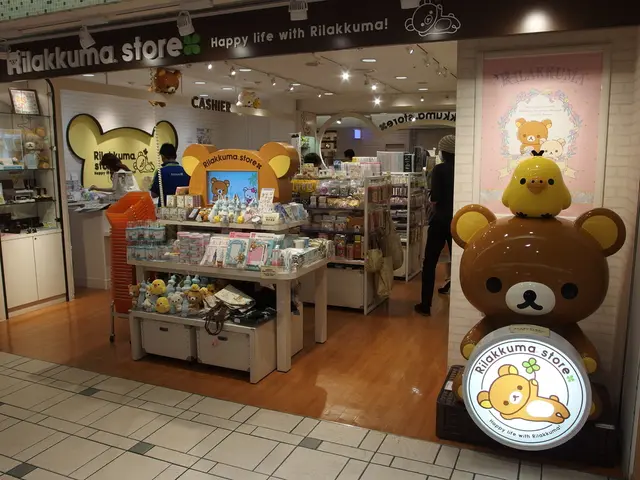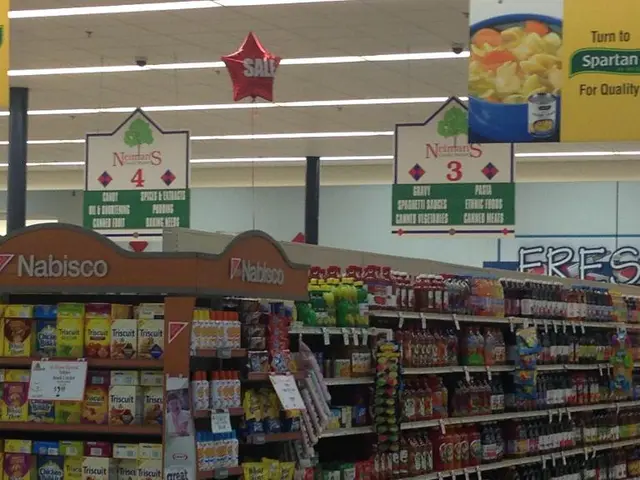Rural 24/7 Mini-Marts: The New Convenience in Countryside Shopping
Village Mini-Supermarkets: Important Insights to Consider - Village Convenience Stores: A Must-Know for Residents
*
If you're craving a spontaneous run to the convenience store for a couple of ingredients for a birthday cake, city life makes it a breeze. But, in rural areas, the closest supermarket might be miles away. Enter the era of countryside retail mini-marts – automated, 24/7 convenience stores.
How do they work?
These small stores are not continuously staffed, but instead, operate autonomously most of the time. While there's staff to manage restocks and assist customers for a few hours each week, the customers are responsible for self-scanning and payment.
What's the buzz in the southwest?
Companies like Tante M are emerging as providers of these rural convenience stores. They currently operate around 60 stores, primarily in Baden-Württemberg, in partnership with independent franchisees. There are also Teo-mini-markets sprouting in the north, belonging to the Hessian trading company Tegut.
So, what's the schedule?
Tante M stores usually operate from 5:00 AM to 11:00 PM seven days a week. According to business manager Carsten Pletz, this covers the core needs of customers. Most stores close at night for security reasons, and a 24/7 store might not be vital in rural areas. Conversely, Teo-markets remain open 24/7.
What's the legal scoop?
"Shops cannot open on Sundays," explains trade expert Stephan Rüschen, professor of food retail at the Dual University of Baden-Württemberg in Heilbronn. Yet, municipalities still grant licenses. "We could call it a legal gray area," says Rüschen.
The Greens in the state parliament suggest otherwise, stating that it's time to officially allow the opening of such stores on Sundays in theShop Opening Act. Some federal states have already made this move. In Hesse, the state parliament passed an amendment last year, permitting stores of up to 120 square meters and solely selling daily necessities to operate on Sundays.
Do the stores hit the mark?
Tante M's business manager Carsten Pletz confirms that customer feedback is overwhelmingly positive. "We receive super positive feedback," he says. Village brass bands often accompany openings, with the mayor providing a speech.
Politics too's taking notice. According to Andreas Schwarz, parliamentary group leader of the Greens in the state parliament, these stores enable villagers to purchase essentials without having to drive long distances by car. This also boosts the attractiveness of rural areas where bakeries, butchers, and village stores have been absent for years.
Seems pricey, doesn't it?
While there's no definite data on the pricing, customers may expect a slight premium of around 10% compared to traditional supermarkets, according to retail expert Rüschen. Despite that, most consumers find the price range acceptable.
Any issues with theft?
"I'd be lying if I said theft isn't an issue," admits Carsten Pletz of Tante M. Nevertheless, rural settings offer a strong sense of community, where people want the mini-marts to thrive. Surveillance systems and sometimes access controls further secure these stores.
Keywords: Retail, Mini-Mart, 24/7, Rural, Convenience Store, Baden-Württemberg, Heilbronn, Stuttgart
Enrichment Data:
Overall:
The growth of 24/7 convenience stores in rural Germany reflects broader trends in retail and consumer behavior. Here are some key aspects to consider:
Unmanned Stores and 24/7 Retail
The concept of 24/7 retail is becoming increasingly popular, driven by consumer demand for convenience and flexibility. Across the world, there is a focus on unmanned stores and automation in the retail sector[2]. However, specific data on the prevalence of 24/7 convenience stores in rural areas of Germany is hard to come by.
Sunday Trading Regulations
In Germany, Sunday trading is subject to federal law, which usually protects employees' rest times. However, certain exceptions are made for specific businesses like bakeries and pharmacies. Local regulations in each state may vary, but Sunday shopping is generally limited to only a few exceptions, like late-night shopping on specific days before holidays or special events.
Convenience and Rural Areas
Rural regions in Germany often struggle to maintain consistent retail presence due to lower population densities and higher operational costs. These areas, however, are becoming a playground for innovative retail solutions such as unmanned stores, offering flexible shopping experiences[2].
Consumer Preferences
German consumers, like their global counterparts, appreciate convenience and reliability. Online shopping, which features 24/7 shopping options and reliable home delivery, has gained popularity[1]. For brick-and-mortar establishments, including mini-marts, adapting to customer expectations is crucial.
- The emergence of companies like Tante M and Teo-mini-markets is a response to the need for convenience stores in rural areas, offering a alternative to long drives to supermarkets.
- Retail experts suggest that rural convenience stores may charge a slight premium of around 10% compared to traditional supermarkets, but most consumers find the price range acceptable.
- The future of rural convenience stores may involve operating 24/7, as state parliaments like the one in Hesse have passed amendments to their Shop Opening Acts to allow stores of up to 120 square meters and solely selling daily necessities to operate on Sundays.







